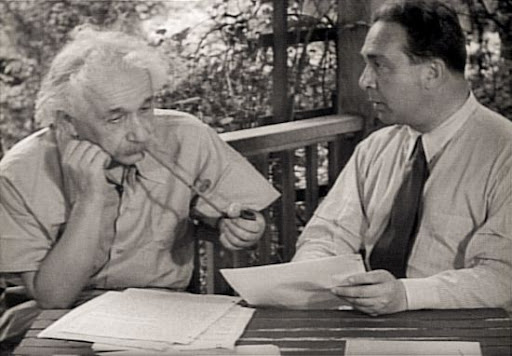Einstein’s Four Letters to Roosevelt
Why did Einstein write to FDR?
American President Franklin Delano Roosevelt received a letter from Albert Einstein, a German-born scientist, informing and cautioning him about current research into Uranium and the development of mighty bombs of a new kind. Although, Albert Einstein believed that it was his duty to write to the president and express his worry about the situation. In his letters, he said that the results of this study gave him hope that Uranium might one day become a significant source of energy in the coming days. In his first letter, Albert Einstein expressed his belief that the government of President Franklin Delano Roosevelt should move quickly to implement the proposal that had been proposed to President Franklin Delano Roosevelt. As a result, he informed President Franklin Roosevelt that a single bomb of this kind might destroy a port and all in its immediate vicinity.
Furthermore, according to the President, he informed the President of the United States that the nation has extremely low uranium ores in modest amounts. In reality, Albert Einstein will be the one to reintroduce FDR to the Manhattan Project. He believed it was his duty to take care of things—the letter sent by Albert Einstein to President Franklin Delano Roosevelt to persuade the U.S. Government to pay awareness to ensure a reliable source of uranium ore for the United States’ nuclear weapons program.
What were his specific concerns?
As early as his first letter was sent on August 2nd, 1939, Albert Einstein expressed his primary worry for Germany, which had significant uranium. He believed that the United States government should take the Manhattan project seriously. He sought to draw their attention to the uranium research being conducted at the University of Pennsylvania. He stated that Canada and former Czechoslovakia are excellent sources of uranium, but the Belgian Congo is the most significant source of uranium in the world. In addition, he expressed a desire for the United States government to act quickly in response to the findings of this study. To provide an example, in his second letter to President Franklin Delano Roosevelt, Roosevelt wished to bring the President’s attention to the progress of a meeting that had been planned the year before. Franklin Delano Roosevelt was introduced to Dr. Szilard because he wanted to resume his study involvement. As a result, Albert Einstein was concerned about the significance of uranium for Germany’s national security at the time. In the first letter, Albert Einstein dictated a script that addressed the issue of Congo Uranium and more than likely described the feedback loops that occurred.
What did he claim was happening in Germany that prompted him to send follow up letters?
President Franklin Delano Roosevelt received a second letter from Albert Einstein. The scientist expressed his worry about Von, the son of the German undersecretary of state, working with other scientists on the Uranium project. He intended to notify the president of this and get his attention to begin working on the manuscript’s release as soon as possible. Germany had a severe problem with uranium, which the Germans exacerbated. In the second letter, he informed President Franklin Delano Roosevelt that he had reviewed the issue with Professor Wigner of Princeton University, awarded the Nobel Prize in physics. The situation had been evaluated in light of the available facts.
Does Einstein express greater urgency with each letter? If so, how and why
On April 25, 1940, Albert Einstein sent a follow-up letter to President Franklin Delano Roosevelt, urging him to continue his involvement with the United States government and emphasize the importance of the nuclear program, which the United States government should prioritize. In the third letter, he also voiced concerns about Germany’s nuclear program in the wake of the events in that country. “Given the appropriate structure and the sufficient finances, it might be completed considerably more quickly than via a loose collaboration of academic labs and government departments,” he said in his letter. Albert Einstein recommended that President Franklin Delano Roosevelt meet with Szilard and discuss specific nuclear weapons plans. President Roosevelt agreed. Lastly, in the fourth letter, he also suggested that some attention be given to the fact that he would be able to present the case on March 25, 1945, as stated in the previous letter. Because of Germany’s nuclear program, Albert Einstein was concerned about the future of his nation.
Conclusion
The letters of Albert Einstein are considered to be among the most important historical records in American history. The Manhattan Project was a United States government initiative during World War II and was responsible for developing and constructing the first atomic weapon. Germany halted its ambiguous program, and subsequently, the United States overtook them, removing the dread that Albert Einstein had previously had. As a result of this new threat, the United States government formed the United States Atomic Energy Commission as a special agency. In addition, Congress formed the Joint Committee on Atomic Energy to develop and manufacture aircraft and missiles capable of delivering nuclear weapons. In his letter to President Franklin Delano Roosevelt, Albert Einstein expressed a sense of urgency. Unfortunately, president Franklin Delano Roosevelt was distracted, maybe due to the strain of other issues or perhaps because of the jargon of nuclear science.







